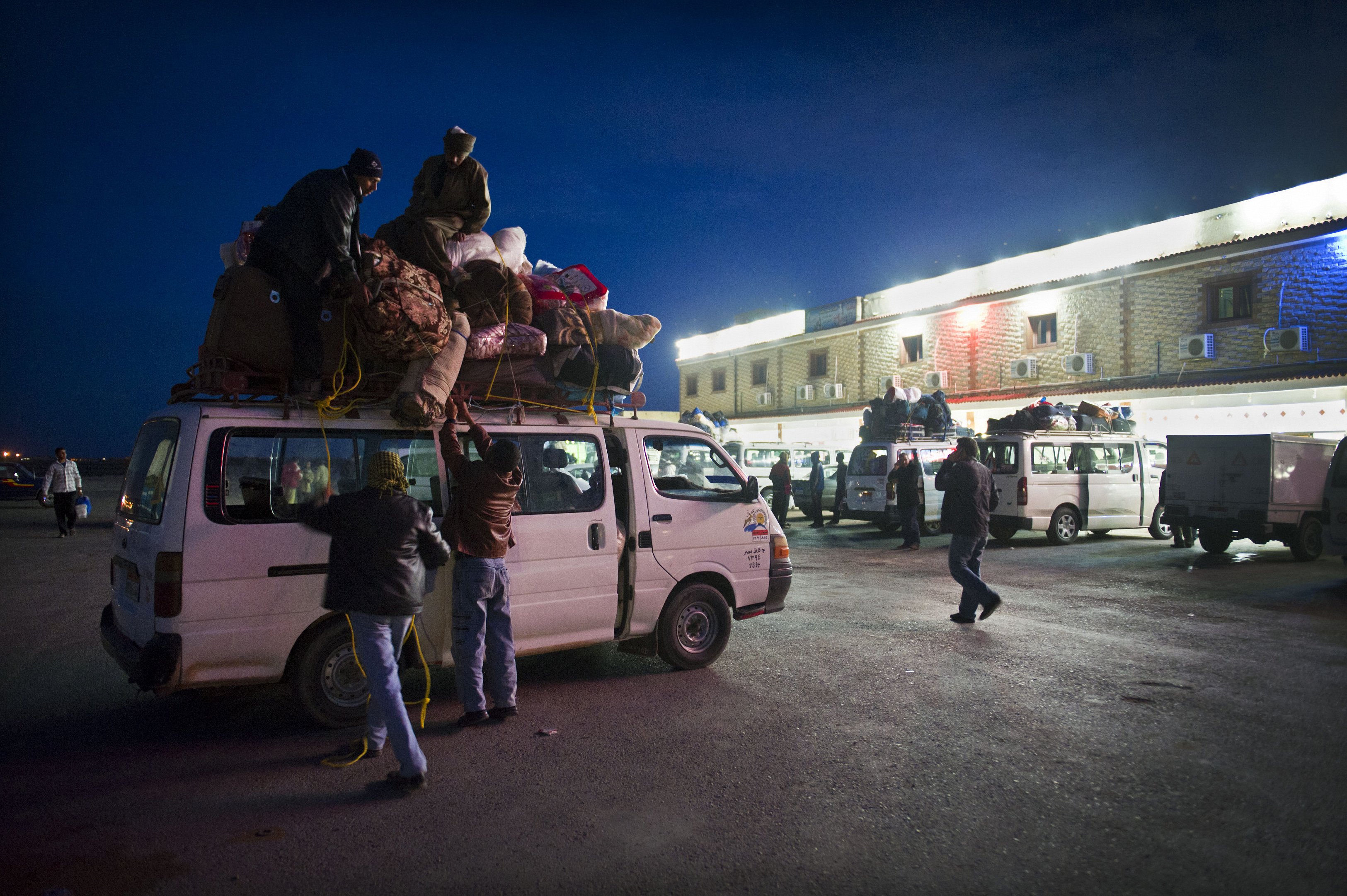Migration intermediaries can take many different forms: smugglers, brokers, gatos, employment agencies, coyotes, saloceiros, village heads, teachers, travel agencies and family members or wider social networks.
These intermediaries shape migration experiences and outcomes. From directing people to specific destinations and into specific jobs and sectors, to influencing how people migrate and shaping living and working conditions post arrival.
Our research examines:
- The relationships between the use of intermediaries and migration-related inequalities
- The ways in which migrants exert agency over the use, form, role and activities of intermediaries.
- How configurations of policies (migration, labour market, recruitment, social protection) influence the activities, role, form, and consequences of intermediaries.
Research Context
Research shows that intermediaries of migration can take many different forms including smugglers, brokers, gatos, employment/ placement agencies, coyotes, saloceiros, village heads, teachers, travel agencies. They may be companies or individuals. Intermediaries may be legally registered entities which pay tax (e.g. employment agencies which facilitate international recruitment) or they may have no legal standing or be ‘illegal’ by virtue of the legal frameworks in place (e.g. brokers, smugglers). Migrants tend to have a wide variety of different terms for the intermediaries, dependent on the context, e.g. calo, taikongs, dalal, semsari, dellalo. This means developing a clear operational definition of intermediaries is challenging. It is also critical to reflect on who is using the term. In the literature, migration intermediaries are usually differentiated from social networks (friends and family) in that money changes hands. However, there is increasingly recognition that intermediaries of all kinds are deeply embedded within migrant communities and that it is not always possible – or even desirable – to analytically differentiate intermediaries from social networks. Indeed, friends and families also act as intermediaries of migration. Moreover, the literature notes that many intermediaries are migrants or former migrants.
Intermediaries conduct a wide variety of different activities aimed at facilitating migration, including document dispatch (e.g. helping broker visas, arrange birth certificates, passports), booking transportation, guiding, finding jobs, accommodation, connecting to healthcare and medical tests and providing training. The activities are familiar the world over and are not unique to migrants in the global south. There is nothing innately ‘illegal’ about what migration intermediaries do but depending on whether the migration is irregular – or regular – their activities may operate on a spectrum of legality.
Intermediaries are meso-level actors, connected to migrants, to local communities, to employers and to national governments in both origin and destination states. While there is nothing new about them – in many geographical contexts, they have long been the norm – scholars generally agree that their numbers have swelled in the past three decades alongside the increase in international migrants. One of the reasons identified in the literature is that as immigration (and exit) controls have become tougher and more bureaucratised, it has become increasingly challenging for migrants to manage the process of regular migration themselves. One solution is to hire intermediaries to manage the paperwork associated with the regular migration process. Another is to hire a different type of intermediary to help facilitate travel irregularly, bypassing the immigration (and exit) controls. In the case of labour migration brokerage, neoliberalism and flexible labour markets are usually mooted as reasons for the increase in intermediaries. This is because intermediaries are able to deliver low-wage, highly controlled workforces, quickly and cheaply for employers.
Intermediaries are known to have a series of micro and macro impacts on people, on geographic contexts, on labour markets, and on policy frameworks. For instance, intermediaries are known to direct people to specific destinations (countries, regions, towns and cities), into specific jobs and sectors, to influence how people migrate (route, transport), whether they travel regularly or irregularly and to what degree, what documents they travel with, the cost of journey etc. They also impact significantly on peoples’ experiences on the journey – good or bad – as well as their outcomes when they arrive in their destination country (e.g. when recruiters channel specific groups of migrants into low wage, poor condition jobs, charge high recruitment fees which means people are held in debt bondage or can’t remit monies home). An emerging literature however provides a counternarrative in highlighting that intermediaries that operate in origin countries can also act as agents of empowerment, enabling migrants to overcome pre-existing inequalities (e.g. gender, inequality). How intermediaries intersect with inequalities – positively or negatively, or even neutrally – is vastly under-theorised in the literature.
Data for this WP will be collected through the survey and in Haiti-Brazil, Egypt-Jordan and Nepal-Malaysia. The three corridors provide contrasting examples of the types, form, use and activities of migration intermediaries. This provides significant opportunities for comparative analysis. Co-Is and their researchers in the countries will conduct the fieldwork. In this WP, we will work closely with the relevant corridor teams as well as with WP1 (Gender), WP2 (Children) and WP4 (Decision-making).
Research Questions
- Who or what mediates the process of migration?
- What do intermediaries do?
- How does migrant agency impact on the intermediation of migration?
- Which structural factors impact on the intermediation of migration?
- How do intermediaries mediate, and how are they mediated by, inequalities?
